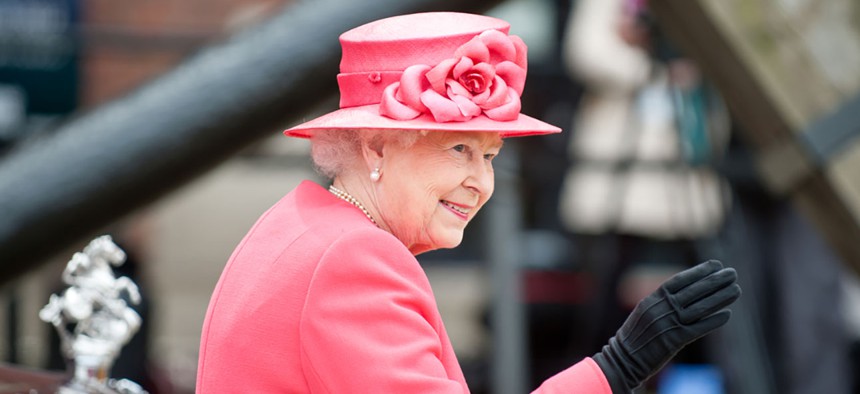
Shaun Jeffers / Shutterstock.com file photo
How To Lead Like The Queen Even If You're a Commoner
She never applied and she can't be fired—but the long career of Queen Elizabeth II still offers lessons.
Queen Elizabeth II has reigned in Britain for 66 years, longer than any of her predecessors or indeed any other living monarch on the planet.
Her authority as the UK head of state is not so much executive—the monarchy can no longer pass laws, declare wars, or order executions—as symbolic. Yet she remains enormously popular in the UK, and as a result so does the institution she represents. Polls regularly findthat at least two-thirds of Brits say the monarchy is good for Britain. And while her job is structured a little differently than most people’s—she can’t be fired, for one—her reign still comes with valuable leadership lessons for commoners.
On the occasion of the queen’s birthday (Elizabeth turns 92 years old on April 21, but don’t confuse this with the Queen’s Birthday, a public holiday perennially observed in June for the reason that while monarchs and their birthdays may change, the window in which UK weather is nice enough for a parade does not) we look back at her tenure for clues about maintaining a long streak of success.
Take assignments gracefully
This queen was, technically, not born to rule. Her uncle King Edward VIII was the heir to the throne, and presumably any children he might have had would have succeeded him. But when he abdicated, his younger brother George VI was forced to take the job, meaning that his eldest daughter—then just 10—would have to eventually do the same.
It’s left to producers of Netflix’s The Crown to imagine any reservations Elizabeth had about the life-changing role. In public she has accepted it without complaint or resistance, which helped soothe the turbulence set off years earlier by her uncle’s abdication. She has also gracefully prepared for her succession, ceding increasing responsibility in her later years to her heir apparent and younger members of the royal family, to ensure a smooth public transition when the next monarch is crowned.
Show up and be consistent
The queen’s job, the royal family’s official website states, is to act “as a focus for national identity, unity and pride; [and give] a sense of stability and continuity.”
She’s mastered the use of iconography in the role: those monochrome hats and coats, her trend-resistant hairstyle, and the corgis aren’t accidents. But more impressively, the queen has remained relentlessly on message throughout the decades as an uncomplaining, discreet, flawlessly decorous ambassador for a particular ideal of British stoicism.
Well into her advanced years, Elizabeth has maintained a full schedule of public events. In 2015, the year she turned 89, she took on 341 engagements, including 35 overseas commitments. She still maintains a near-daily schedule of public appearances. Yes, “work” for the queen often means holding flowers, waving, and smashing champagne on ships, but she always shows up for it.
Know when to hold back
One of the more unusual things about the Queen’s leadership style is that while she has been present as a national figurehead during times of tumult and change, she has generally declined to comment publicly on even the most vital political and social issues affecting the country she rules.
Her annual speeches to the public on Christmas Day are full of generic platitudes on family, country, and service; her charities support uncontroversial causes like children, animals, and the arts. It made headlines in 2014 when the Queen made a rare exception and referred publicly to the upcoming referendum on Scottish independence as she was exiting church. Her statement about the potential breakup of the then-307-year-old kingdom she ruled was, in its entirety: “Well, I hope people will think very carefully about the future.” And that was it.
It feels at first glance like an abdication of responsibility—if Shakespeare is anything to go by, shouldn’t part of a monarch’s role be to offer rousing support when the nation is fractious or down? But on closer look, her public reticence is a dignified choice for someone who was not elected to represent people—and it ages well. Opinions can go out of fashion. Reserving one’s opinions never does.
NEXT STORY: Will Andrew McCabe Be Prosecuted?






